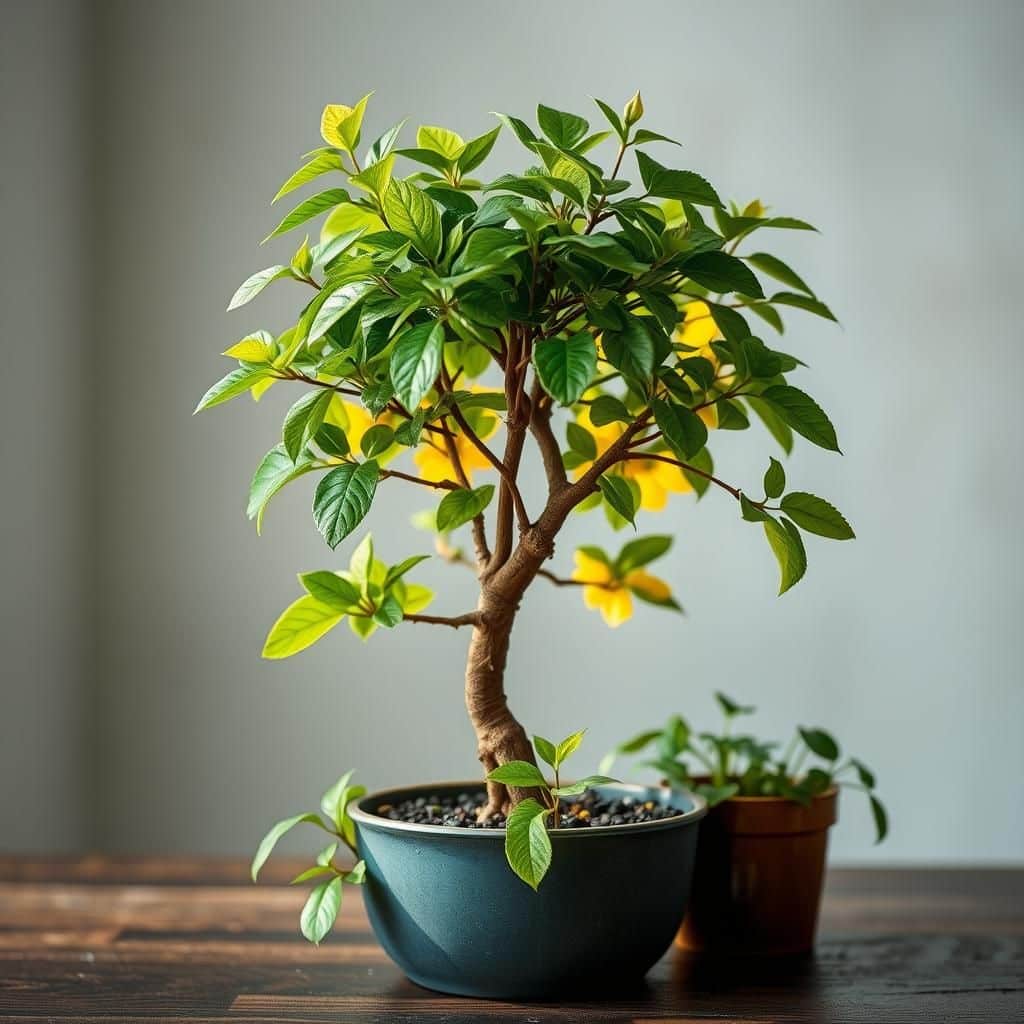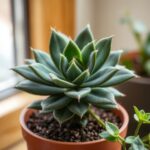How Do I Perk Up My Money Tree? Essential Tips for Thriving Plants

Money trees, scientifically known as Pachira aquatica, are popular houseplants admired not only for their unique appearance but also for their believed ability to attract prosperity and good fortune. However, keeping a money tree thriving requires more than just good intentions; it demands understanding of its specific needs. In this article, we will explore essential tips to perk up your money tree, ensuring it flourishes in your home. From optimal lighting and watering practices to soil selection and pest management, these guidelines will help you cultivate a healthy, vibrant money tree that serves as both a beautiful addition to your space and a symbol of wealth.
How to Revitalize Your Money Tree
To perk up your money tree, begin by assessing its environment and care routine. Ensure it receives the right amount of indirect sunlight as excessive direct sunlight can damage its leaves. Check the soil moisture regularly; a money tree prefers to dry out between waterings, so allow the top inch of soil to become dry before watering again. Utilize a balanced fertilizer every few months during the growing season to encourage lush growth. Additionally, keeping the humidity levels between 40-60% and occasionally wiping the leaves can help prevent dust buildup, allowing the plant to breathe better and stay healthy.
Optimal Light Conditions
The money tree thrives in bright, indirect light. Position it near a window that provides filtered sunlight, avoiding direct rays that can scorch its leaves. Insufficient light can lead to stunted growth and leaf drop, so it's essential to monitor your plant's positioning, especially during seasonal changes.
Watering Practices
Watering your money tree correctly is vital for maintaining its health. The plant prefers its soil to dry out slightly between waterings. Typically, you should water when the top inch of soil feels dry to the touch. Overwatering can lead to root rot, so ensure the pot has drainage holes for excess water to escape.
Humidity and Temperature
Maintaining appropriate humidity and temperature levels is crucial for a healthy money tree. It thrives in humid environments between 40-60%, so consider misting the leaves or using a humidity tray if your home is dry. The ideal temperature range for growth is between 65°F to 80°F (18°C to 27°C), so keep the plant away from drafts and extreme temperature fluctuations.
Fertilizing Your Plant
Using a balanced fertilizer every 4-6 weeks during the growing season can provide essential nutrients, enhancing your money tree's growth. Look for a fertilizer high in nitrogen to support foliage growth. Always dilute the fertilizer to half the recommended strength, as too much can harm the plant rather than help it.
Pest Control and Leaf Care
Regularly inspect your money tree for signs of pests, such as spider mites or aphids. Treat infestations promptly with insecticidal soap or neem oil. Additionally, wiping down the leaves with a damp cloth helps remove dust and allows for better light absorption, contributing to an overall healthier appearance.
| Care Aspect | Recommended Practice |
|---|---|
| Light | Bright, indirect light |
| Watering | Water when the top inch is dry |
| Humidity | 40-60% humidity |
| Temperature | 65°F to 80°F (18°C to 27°C) |
| Fertilizer | Balanced fertilizer every 4-6 weeks |
How do I bring my money tree back to health?


To bring your money tree back to health, it's essential to address several factors that may be affecting its well-being. Here are some actionable steps to help revive your money tree plant.
Assess the Current Condition
To effectively restore your money tree, the first step is to assess its current condition. Look for signs of distress such as drooping leaves, discoloration, or wilting. Key aspects to check include:
- Leaf Color: Observe if the leaves are yellowing or browning, which can indicate either overwatering or underwatering.
- Soil Moisture: Check the soil’s moisture level. It should be slightly damp but not soggy.
- Pests: Inspect for any signs of pests, such as tiny insects or webbing on the plant.
Correct Watering Practices
One of the most common issues with money trees is improper watering practices. It's crucial to strike a balance:
- Frequency: Water only when the top inch of soil feels dry. Overwatering can lead to root rot.
- Drainage: Ensure that your pot has drainage holes to allow excess water to escape.
- Water Quality: Use room temperature, non-chlorinated water for better absorption.
Provide Adequate Light
Money trees thrive in bright, indirect light. If your plant isn't receiving enough light, it can become weak and unhealthy. To optimize light exposure:
- Location: Place your plant near a window where it can get filtered sunlight.
- Artificial Light: If natural light is scarce, consider using grow lights.
- Rotate the Plant: Regularly rotate your money tree to ensure all sides receive equal light.
Fertilize Appropriately
To promote healing and growth in your money tree, you need to provide the right nutrients. Fertilizing correctly can enhance its recovery:
- Type of Fertilizer: Use a balanced, water-soluble fertilizer designed for houseplants.
- Fertilizing Schedule: Apply fertilizer every 4-6 weeks during the growing season (spring and summer).
- Dilution: Always dilute the fertilizer to half the recommended strength to avoid burning the roots.
Repot if Necessary
If your money tree is root-bound or suffering from poor soil quality, consider repotting. This can give the plant fresh soil and more room to grow:
- Choosing a Pot: Select a pot that is 1-2 inches larger in diameter than the current one.
- Soil Type: Use a well-draining potting mix suitable for tropical plants.
- Care Post-Repotting: Water thoroughly after repotting and place in a suitable light environment.
How do I make my money tree happy?

To make your money tree (Pachira aquatica) happy, you need to consider several environmental factors, watering techniques, soil quality, and proper care. Below are key aspects to ensure that your money tree thrives.
See also:
Watering Practices
Watering your money tree correctly is crucial for its health. Overwatering can lead to root rot, while underwatering can cause the leaves to become dry and crispy.
- Water when the top inch of the soil feels dry to the touch.
- Ensure the pot has good drainage to avoid standing water.
- Use filtered or distilled water if possible, as tap water can contain harmful chemicals.
Light Requirements
Money trees prefer bright, indirect light but can tolerate lower light conditions. Too much direct sunlight can scorch their leaves.
- Place your money tree near a window where it receives indirect sunlight.
- Rotate the pot occasionally to ensure even growth.
- If natural light is limited, consider using grow lights to supplement.
Humidity Levels
Maintaining adequate humidity is essential for your money tree. They thrive in higher humidity, similar to their native swampy habitats.
- Use a humidity tray filled with water and pebbles beneath the pot.
- Consider misting the leaves regularly, especially in dryer months.
- A humidifier can provide optimal conditions during winter when indoor air tends to be drier.
Soil Quality
The right potting mix can significantly affect the health of your money tree. A well-draining soil is necessary to prevent water logging.
- Use a potting mix designed for houseplants, or create your own with equal parts peat moss, perlite, and pine bark.
- Ensure the pot is appropriately sized to allow growth but not excessively large.
- Re-pot every couple of years to refresh the soil and provide more space for the roots.
Fertilization Techniques
Fertilizing your money tree during the growing season can help it flourish. However, too much fertilizer can cause harm.
- Use a balanced, water-soluble fertilizer diluted to half strength.
- Fertilize every 4-6 weeks during the spring and summer months.
- Avoid fertilizing during the fall and winter when the plant's growth slows down.
Questions from Our Readers
How do I determine if my money tree needs more light?
To determine if your money tree needs more light, observe the leaves: if they are yellowing or dropping, it might be a sign that it's not getting enough natural light. Ideally, position your money tree in a location where it can receive bright, indirect sunlight for several hours a day to promote healthy growth.
What type of soil is best for a money tree?
The best type of soil for a money tree is a well-draining potting mix that retains some moisture without becoming waterlogged. A combination of peat, perlite, and sand is effective, as it ensures that the roots have adequate aeration and nutrient access while preventing root rot.
How often should I water my money tree?
You should water your money tree when the top inch of soil feels dry to the touch, which is typically every 2-3 weeks. Ensure that the pot has good drainage to avoid standing water, as overwatering can lead to problems like root rot and affect the overall health of the plant.
See also:
What are the signs of a healthy money tree?
Signs of a healthy money tree include vibrant green leaves, a sturdy trunk, and an overall full appearance without any excessive leaf drop or yellowing. A thriving money tree will also show new growth regularly, indicating that it's receiving the right balance of light, water, and nutrients.
https://youtube.com/watch?v=emCAXs1c68c
If you want to read more articles like How Do I Perk Up My Money Tree? Essential Tips for Thriving Plants, we recommend you check out our Pots category.
Leave a Reply
Related Articles